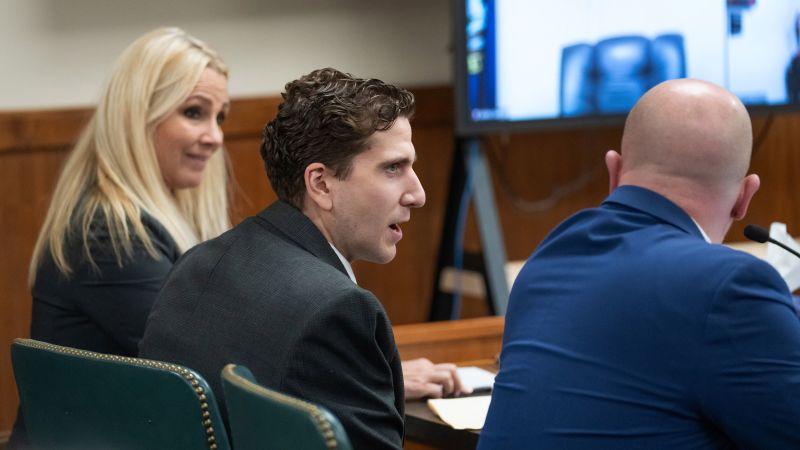Steve Goncalves was stunned over the weekend when he learned that prosecutors in Moscow, Idaho, had reached a plea deal with Bryan Kohberger, the man charged in the 2022 stabbing deaths of his daughter, Kaylee, and three other University of Idaho students. Just days earlier, Goncalves and other victims’ families had expressed their opposition to any plea agreement, urging prosecutors to pursue the death penalty in hopes of achieving closure through a trial.
The plea deal, which emerged as Kohberger’s defense faced significant legal setbacks, would allow him to plead guilty to all four counts of murder in exchange for the government dropping the death penalty. This development has left some families feeling blindsided and dissatisfied with the process.
Families Express Diverging Views on Plea Deal
Goncalves and his family criticized the deal as “hurried” and “secretive,” arguing that prosecutors should have consulted with victims’ families before reaching an agreement. Jeff Kernodle, father of victim Xana Kernodle, echoed these sentiments, describing the deal as a “missed opportunity” to set a precedent for accountability in such cases.
“It could have sent a message to others that these kinds of horrific crimes carry real consequences,” Kernodle stated, lamenting that the plea deal does not fulfill this potential.
In contrast, families of the other two victims have expressed support for the plea deal. Ben Mogen, father of Madison, emphasized acceptance and the desire to avoid a lengthy trial. Similarly, Ethan Chapin’s mother, Stacy Chapin, indicated her family’s support for the plea bargain, noting they would attend court proceedings to back the agreement.
Legal Experts Weigh In on Plea Deal Dynamics
Plea deal negotiations are typically conducted privately, and details often remain undisclosed unless one party chooses to reveal them. According to University of Idaho associate law professor Samuel Newton, plea deals involve offering defendants incentives, such as reduced sentences, in exchange for guilty pleas. The high costs and extended timelines associated with death penalty cases may have influenced both sides to reach an early conclusion.
“The family is looking at … decades of legal proceedings in a death penalty case, versus if he takes life without parole, it’s done and the family gets that degree of closure,” Newton explained.
Newton also noted that Kohberger’s defense team had faced a series of legal defeats, including the inability to present an official alibi or an “alternate perpetrator” theory, which likely narrowed their strategic options.
Judge’s Role and Potential Outcomes
The plea deal is not finalized until State District Judge Steven Hippler approves it. During a scheduled hearing, the judge will address the plea agreement and may require Kohberger to confess to details of the crime. This requirement could provide some closure for the families seeking answers about the motive and specifics of the stabbings.
Goncalves and Kernodle have both advocated for such confessions to be part of the plea deal, arguing that they would help dispel any lingering doubts about Kohberger’s guilt and prevent the case from becoming a “true crime nightmare” for the families.
There is also a possibility that Kohberger could enter an Alford plea, maintaining his innocence while accepting the plea deal. This option, stemming from a 1970 Supreme Court case, allows a defendant to plead guilty without admitting to the crime. However, Newton believes it is unlikely prosecutors would accept this plea unless Kohberger takes full responsibility for the killings.
Implications and Future Considerations
The decision on whether to accept the plea deal lies with Judge Hippler, who will evaluate the agreement during the hearing. The outcome will have significant implications for the families involved, as well as for the broader community seeking justice for the victims.
As the legal process unfolds, the case continues to highlight the complexities and emotional challenges associated with plea deals in high-profile criminal cases. The decisions made in the coming days will not only impact the immediate parties but may also influence how similar cases are handled in the future.
The hearing is set for 11 a.m. Wednesday, and all eyes will be on the courtroom as the judge weighs the plea agreement and its potential consequences.
